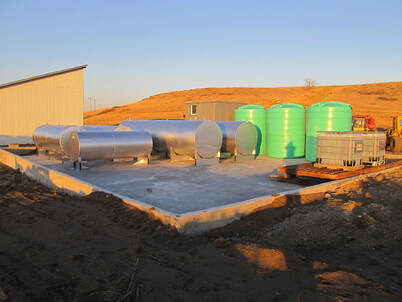|
The purpose of the Spill Prevention, Control, and Countermeasure (SPCC) rule is to help facilities prevent a discharge of oil into navigable waters or adjoining shorelines. This rule is part of the U.S. Environmental Protection Agency’s (EPA) oil spill prevention program and was published under the authority of Section 311(j)(1)(C) of the Federal Water Pollution Control Act (Clean Water Act) in 1974. The rule may be found at Title 40, Code of Federal Regulations (CFR), Part 112.
|
Who needs an spcc plan?
If you store oil or petroleum products at your facility you may need an SPCC plan. Federal regulations 40 CFR 112 contain the Oil Pollution Prevention requirements. Essentially, if your facility stores more than 1,320 gallons of oil or petroleum products above ground, you need to have an SPCC plan. There are many facilities that fall within the scope of the regulation - even if they aren’t related to the production of petroleum products. These could include large farms or other agricultural facilities, industrial facilities with large storage tanks, public facilities such as airports, hospitals, or even commercial facilities like car dealers.
DETROIT2990 West Grand Boulevard, M-18
Detroit, MI 48202 (734) 975-1970 |
ANN ARBOR1210 North Maple Road
Ann Arbor, MI 48103 (734) 975-1970 |
GRAND RAPIDS |
© APPLIED ENVIRONMENTAL 2024.
|


